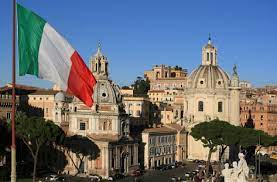Italy: Why do they celebrate Liberation Day?

Rome: Italy celebrates Liberation Day, known in Italian as Festa della Liberazione, with a national public holiday each year on 25 April.
The occasion is held in commemoration of the end of the Fascist regime and of the Nazi Germany occupation during world war two, as well as the victory of Italy’s Resistance movement of partisans, or partigiani, who opposed the regime.
Formed in 1943, the partigiani comprised a network of anti-Fascist activists, from diverse backgrounds including workers, farmers, students and intellectuals, across Italy.
Together they united in armed resistance against the Nazi occupation and the Fascist regime, making their struggle both a war of liberation and a civil war.
The date of 25 April marks the day in 1945 when a nationwide radio broadcast calling for a popular uprising and general strike against the Nazi occupation and Fascist regime was announced by the National Liberation Committee of Upper Italy (CLNAI), a political umbrella organisation representing the Italian resistance movement.
This announcement – made by partisan and future president of Italy Sandro Pertini – resulted in the capture and death of Fascist leader Benito Mussolini, who was shot three days later.
The first uprising and liberation took place in Bologna on 21 April 1945, followed two days later by Genoa, then Milan on 25 April, and Turin and Venice on 28 April.
All of northern Italy was liberated by 1 May, with the advance of the Allied forces, leading the occupying German forces to surrender officially on 2 May.
The Festa della Liberazione also represents a significant turning point in Italy’s history, paving the way for the referendum of 2 June 1946 when Italians voted in favour of a republic and against the monarchy which had been discredited during the war and whose members went into exile.
Designated a national holiday in 1946, the Festa della Liberazione remains a divisive day in Italy, coming under attack each year from politicians on the right who refuse to celebrate the event.
In addition to the closure of schools, public offices and most shops, the day is marked traditionally by parades across the country, organised by ANPI, the National Partisan Association of Italy.
These events are usually marked with speeches, the laying of wreaths and singing of Bella Ciao, the anthem of the anti-fascist resistance, however this year most activities will move online due to covid-19.
Adhering to Italy’s coronavirus restrictions to avoid crowds, ANPI is inviting people to leave flowers at monuments and tombstones honouring the women and men who fought in the Resistance.
In late 2019 Italy announced plans to establish the Museo Nazionale della Resistenza, a national museum dedicated to the Italian Resistance movement, in Milan.





